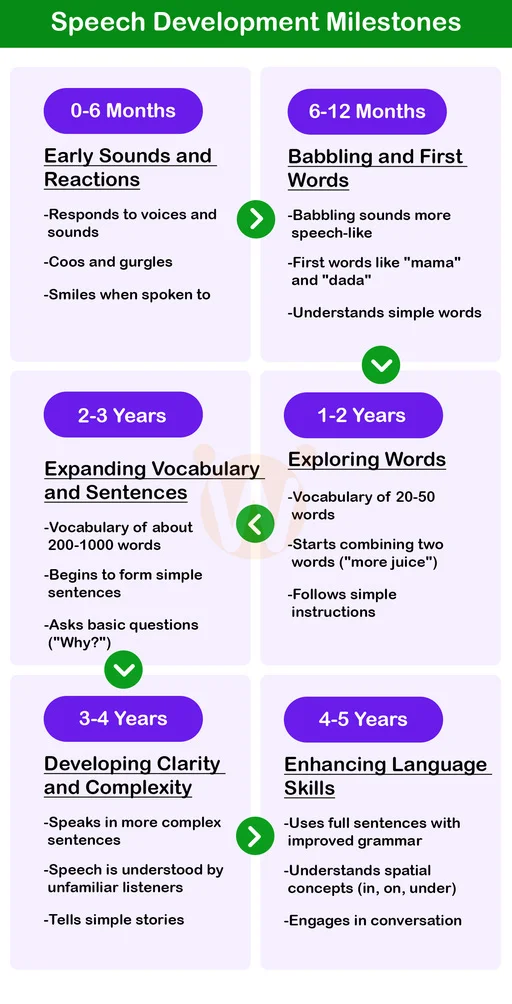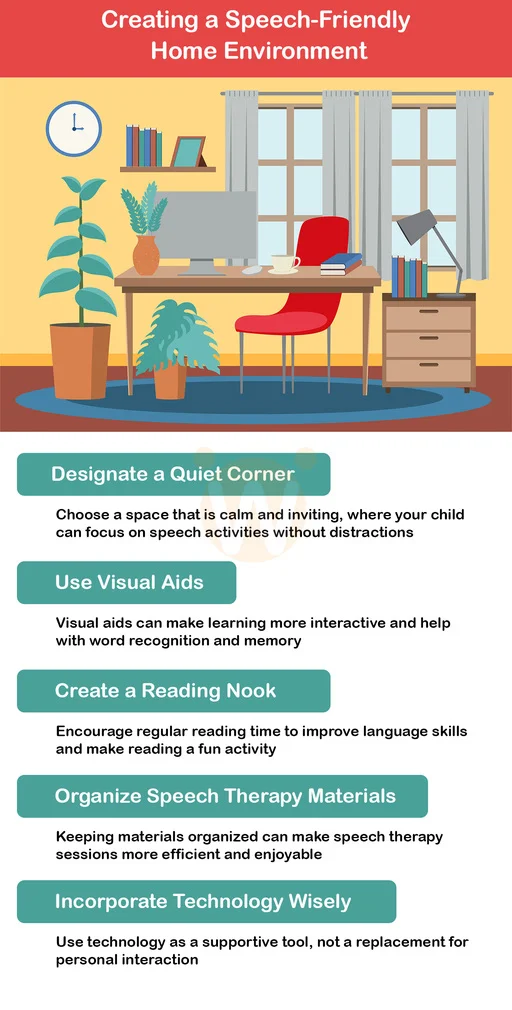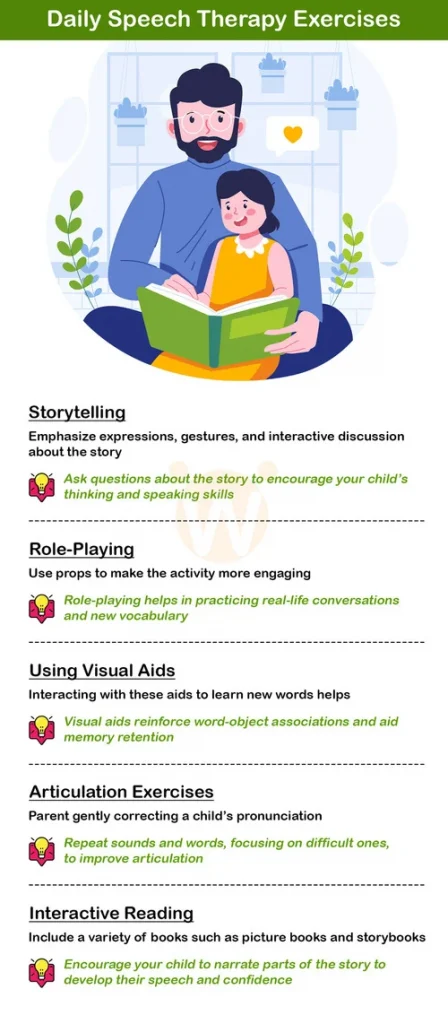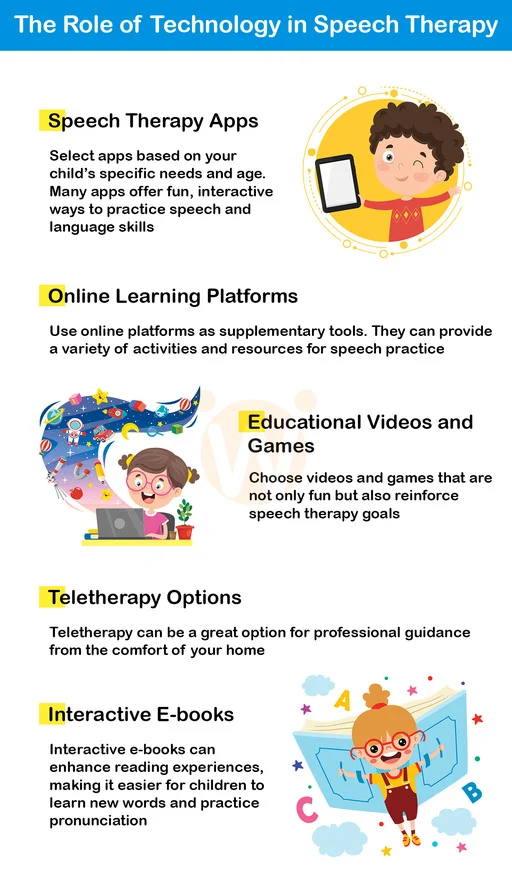Speech Therapy at Home: Key Tips Every Parent Should Know
By Rajini D
Last Updated: January 20, 2024
Welcome to a journey where every word counts and every sound matters. In the early stages of a child’s life, speech and language development are more than just milestones—they are the building blocks for future communication, learning, and social interactions. Addressing speech and language issues in children is not just a step towards clear articulation; it’s a stride towards empowering them with the confidence to express themselves and engage with the world around them.
As parents, your role in nurturing and supporting your child’s speech development is invaluable. You’re not just their first teachers; you’re their lifelong cheerleaders. In the comfort of your home, surrounded by love and familiarity, you have the power to positively influence your child’s speech and language skills. It’s about turning everyday moments into opportunities for learning, whether it’s during playtime, mealtime, or even the simple act of reading a bedtime story.
Enter the world of “Speech Therapy at Home”—a practical, engaging, and effective approach to speech development. Tailored for the modern family, this concept embraces the reality that professional therapy, combined with a nurturing home environment, can create a powerful synergy for your child’s speech and language development.
Learn more about the early identification of speech delays and its importance.
Understanding Speech Therapy Needs

The Crucial Role of Early Identification
The journey of speech and language development is as unique as your child’s, with each word and gesture forming an integral part of their growth. The early identification of speech and language issues is paramount. It’s like catching a small stone in your shoe before it causes a blister. Addressing these concerns promptly can prevent potential challenges in learning, social interaction, and self-esteem that your child might face.
Early signs might include delayed speech milestones, difficulty in pronunciation, or struggling to form sentences. Observing and acknowledging these early signs is the first step in a journey toward effective communication. Consulting with Speech-Language Pathologists is crucial in this journey.
Consulting the Experts: Speech-Language Pathologists
Navigating the maze of speech development can sometimes require a guide. This is where Speech-Language Pathologists (SLPs) come into play. These professionals are like detectives and teachers rolled into one, trained to identify, assess, and treat speech and language disorders. They offer a personalized approach, ensuring that each child’s unique needs are met with the right strategies and exercises.
Consulting with an SLP is not just about getting a diagnosis; it’s about building a roadmap for success. They can offer invaluable advice on how to support your child’s speech development at home. Remember, seeking professional help is a sign of strength and proactive care for your child’s future.
Speech Development Milestones
| Age | Milestones |
|---|---|
| 6-12 Months | Babbling, first words like ‘mama’, ‘dada’ |
| 1-2 Years | Simple sentences, vocabulary of 20-50 words |
| 2-3 Years | Vocabulary expansion, asking questions |
| 3-4 Years | Complex sentences, clear speech, storytelling ability |
Explore our comprehensive guide on The Early Years of Speech and Language
Setting Up for Success at Home

Creating a Conducive Environment
Your home is the first school, and you, as a parent, are the first teacher. Transforming a part of your home into a conducive space for speech therapy can significantly impact your child’s learning. It’s about minimizing distractions – turning off the TV, setting aside toys not related to the session, and creating a quiet, comfortable space dedicated to learning and interaction.
Tips for Creating a Speech-Friendly Home Environment
| Element | Description |
|---|---|
| Quiet Space | Dedicate a quiet corner for focused speech activities |
| Visual Aids | Use flashcards and pictures to enhance word recognition |
| Books | Read a variety of books to build vocabulary and comprehension |
| Daily Conversations | Engage in regular, meaningful conversations during daily routines |
The environment should be welcoming and safe, a place where your child feels encouraged to express themselves without any fear or hesitation. Think of it as setting the stage for the wonderful performance of speech and language development.
The Power of Routine and Consistency
The journey of speech therapy at home is a marathon, not a sprint. Establishing a routine and maintaining consistency is crucial. It’s like watering a plant; regular care leads to growth. A consistent schedule helps your child understand what to expect and creates a framework of familiarity and comfort, which is essential in learning new skills.
Incorporate speech therapy exercises into daily routines, such as during meals or bath time. Consistency does not mean rigidity; it’s about creating a flexible structure that adapts to your child’s pace and keeps them engaged and motivated.
Engaging Speech Therapy Exercises and Activities

Transforming speech therapy into an engaging and fun activity at home can significantly impact your child’s progress. Here are some exercises and activities that not only make learning enjoyable but also integrate seamlessly into your daily routine.
- Clear Language Use:
Start by using clear, simple language when communicating with your child. Speak slowly and distinctly, emphasizing keywords. This helps your child understand the sounds and patterns of speech more effectively. - Role-Playing:
Children learn best when they’re having fun. Role-playing various scenarios, like shopping, visiting a doctor, or even a simple tea party, can encourage your child to use new words and phrases in a contextual setting. - Visual Aids:
Incorporate flashcards, picture books, or even homemade drawings to make learning more visual. Visual aids can help reinforce the connection between words and their meanings, aiding in better comprehension and vocabulary building. - Storytelling:
Narrate stories or encourage your child to create their own. This practice not only enhances vocabulary but also helps in developing narrative skills and understanding the structure of language. - Everyday Activities:
Incorporate speech therapy into daily activities. For instance, while cooking, name the ingredients out loud and describe what you’re doing. This integrates learning seamlessly into day-to-day life. - Family Participation:
Make it a family affair. Encourage siblings and other family members to participate in activities and games that support speech development, fostering a supportive and inclusive environment.
Also Read: Engaging Home-Based Occupational Therapy Activities for Children with Autism
Using Technology and Resources
In today’s digital age, technology can be a valuable ally in your child’s speech therapy journey.

1. Speech Therapy Apps:
There are numerous apps designed to make speech therapy fun and interactive. From articulation apps to language development games, these tools can provide structured yet enjoyable learning experiences. Wellness Hub often recommends a variety of these apps tailored to meet different age groups and specific needs.
2. Online Resources:
Leverage the wealth of online resources available. This includes educational videos, speech therapy websites, and interactive online games. These resources can offer new and exciting ways to learn, ensuring that your child remains engaged and motivated.
Also Read: In-Person vs. Online Speech Therapy: Which is More Effective?
3. Age-Appropriate Tools:
When selecting technological aids, ensure they are age-appropriate and resonate with your child’s interests. The goal is to create a learning experience that is both beneficial and enjoyable.
Remember, while these digital tools are valuable, they are most effective when used in conjunction with traditional speech therapy methods and under the guidance of a professional. Blending technology with hands-on activities creates a holistic approach to speech development.
Encouragement and Positive Reinforcement
In the journey of speech therapy at home, the emotional climate you create is just as crucial as the exercises themselves. The heart of this journey lies in patience, encouragement, and positive feedback.
- Cultivating Patience: Speech development is a process, not an overnight change. It requires patience. Understand that every child progresses at their own pace. Celebrate the small steps, the almost-right words, the attempts, and the efforts. Your patience is the quiet assurance your child needs to keep trying.
- Positive Reinforcement: Encouragement can be transformative. A simple “Well done!” or “You’re trying so hard, and it shows!” can boost your child’s confidence immensely. Remember, it’s not just about getting the words right; it’s about the effort put into speaking them.
- Rewarding Progress: Small rewards can go a long way in maintaining motivation. This doesn’t always mean gifts or treats. It could be an extra story at bedtime, a favorite game, or even a special activity with you. These rewards create positive associations with speech practice, making it something they look forward to.
Learn more: How does Reinforcement work in Learning?
Monitoring Progress and Adjusting Strategies
No journey is without its need for course corrections, and speech therapy at home is no different. Monitoring progress and being flexible with strategies are key to finding what works best for your child.
- Tracking Progress: Keep a simple record of your child’s progress. This could be a notebook where you jot down new words they’ve used, improvements in clarity, or even how they’re participating in exercises. This log is not just a record; it’s a roadmap that shows how far you’ve both come.
- Being Flexible: If a particular exercise or approach isn’t working, don’t hesitate to adjust. Flexibility is essential. Sometimes, a different game, a new set of words, or even a change in routine can make a difference.
- Collaborating with Speech Therapists: While practicing speech therapy at home, remember that collaboration with professionals is invaluable. Speech therapists can provide tailored advice and adjust strategies based on your child’s progress. They are your allies in this journey, offering expertise and guidance when you need it. Wellness Hub can be a great resource to connect with such professionals, ensuring that you have the right support at every step.
Practical Tips for Parents
Integrating speech therapy into your family’s daily routine needn’t be a daunting task. It’s about finding the right balance and making speech development a natural part of your day.
- Make Learning Fun and Part of Daily Activities:
Incorporate speech exercises into everyday tasks. For example, during mealtime, talk about the food – its color, taste, and texture. During playtime, describe actions and objects. These simple interactions are opportunities for learning. - Create a Language-Rich Environment:
Surround your child with words. Label items around the house, read a variety of books together, and encourage conversations. The more words a child hears, the better it is for their language development. - Balance Therapy and Family Time:
Remember, your child is not just a participant in therapy but a part of the family. Ensure that speech therapy doesn’t overshadow other family activities. Family game nights, outings, and downtime are just as important for your child’s overall development. - Include Siblings in the Process:
If your child has siblings, involve them in the process. They can be great models for speech and language, and this also fosters a supportive family environment.
Conclusion
In conclusion, nurturing your child’s speech and language skills at home is a fulfilling journey that can shape their future communication abilities. By incorporating engaging activities, using everyday interactions to reinforce learning, and being patient with their progress, you create a strong foundation for their development. Your role as a parent goes beyond just being a guide—you’re their biggest cheerleader. Celebrate each milestone and remember that every step forward, no matter how small, is a victory. For more resources and expert support, connect with Wellness Hub, where we prioritize your child’s growth and your peace of mind.
Frequently Asked Questions:
1. Can parents effectively conduct speech therapy at home?
Yes, parents can effectively conduct speech therapy at home by incorporating simple, engaging activities and exercises into their child’s daily routine. With patience, consistency, and the right guidance, home-based speech therapy can significantly aid a child’s speech and language development.
2. What are some easy speech therapy exercises for kids at home?
Easy speech therapy exercises include using clear and simple language, engaging in role-playing games, utilizing visual aids like flashcards and storytelling, and incorporating speech therapy into everyday activities like mealtime conversations and playtime.
3. How long should home speech therapy sessions last?
Home speech therapy sessions should be tailored to the child’s attention span and interest. Typically, short sessions of 10-15 minutes, conducted a few times a day, are more effective and manageable for both the child and the parent.
4. How can I measure my child’s progress in speech therapy at home?
Progress can be measured by observing improvements in the child’s vocabulary, clarity of speech, ability to form sentences, and overall willingness to communicate. Keeping a simple log of these observations can be helpful.
5. When should I seek professional help for my child’s speech development?
Professional help should be sought if you notice your child consistently lagging behind speech milestones, experiencing frustration with communication, or if you’re unsure about how to proceed with home therapy.
6. Are there any recommended speech therapy apps or online resources?
There are many speech therapy apps and online resources designed to make learning fun and interactive for children. Wellness Hub recommends a variety of age-appropriate tools and resources to supplement home speech therapy.
7. How can I keep my child motivated during speech therapy sessions at home?
Keeping a child motivated can involve using a variety of engaging activities, offering praise and positive reinforcement, and incorporating rewards for progress. It’s also important to ensure that the activities are enjoyable and not overly demanding.
8. Can speech therapy at home work for children with more severe speech delays?
While home speech therapy can be beneficial for children with various speech delays, those with more severe cases may require professional intervention. Home therapy can complement professional treatment but should not replace it for complex issues.
9. What are the signs that indicate my child might need speech therapy?
Signs that may indicate the need for speech therapy include delayed speech milestones, difficulty pronouncing words, limited vocabulary for their age, difficulty understanding and following instructions, and challenges in forming sentences.
10. Can speech therapy at home improve my child’s academic performance?
Yes, effective speech therapy at home can positively impact a child’s academic performance. Improved communication skills can lead to better understanding and participation in school, enhancing learning and academic success.
About the Author:
Rajini Darugupally
M.Sc., Speech-Language Pathologist (9+ years of experience)
Rajini Darugupally, M.Sc., is a licensed Speech-Language Pathologist with over 9 of experience specializing in both early childhood speech and language development and adult communication disorders. She has worked extensively with children facing speech delays, articulation disorders, and social communication challenges, using evidence-based therapy techniques to enhance their communication skills.
In addition to her work with children, Rajini specializes in adult speech and language disorders, including aphasia, traumatic brain injury (TBI), stroke-related communication challenges, dysarthria, and swallowing disorders (dysphagia). Her expertise spans clinical, educational, and teletherapy settings, where she has helped individuals regain and strengthen their communication abilities.
Rajini holds a Master’s degree in Speech-Language Pathology and is deeply committed to empowering parents and caregivers to support speech and language development at home. Currently, she serves as a lead speech therapist at Wellness Hub, where she collaborates with a team of professionals to create personalized therapy plans and educational resources for families.
Book your Free Consultation Today
Parent/Caregiver Info:
Client’s Details:
* Error Message








